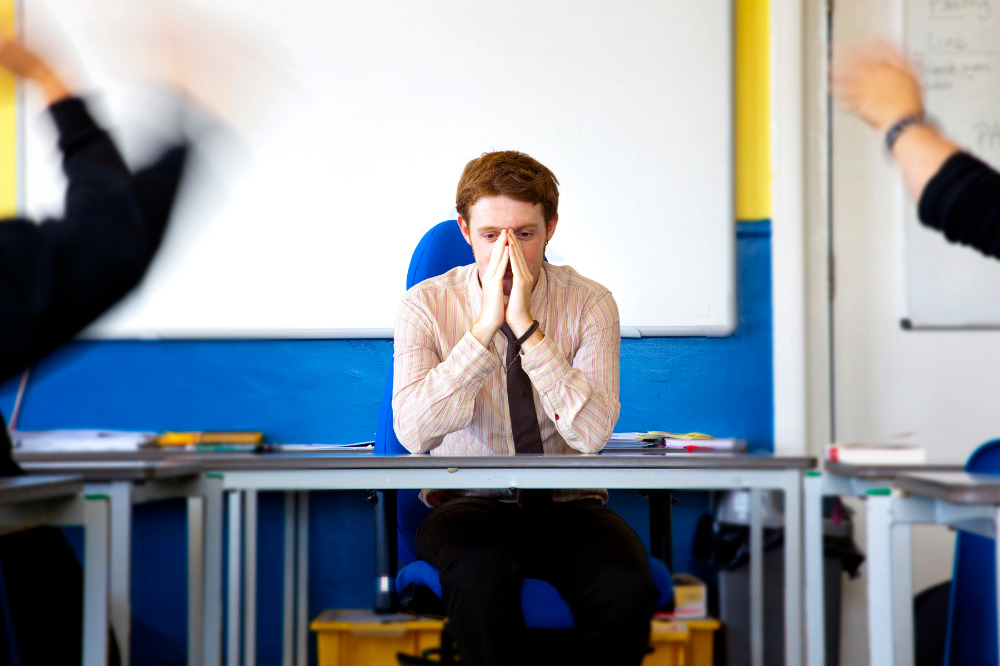
Earlier this week, former WA Premier Carmen Lawrence handed down the final report of a year-long review into the state’s public education system, finding that school workforce shortages are likely to worsen without a significant reduction in teachers’ workloads.
The final report, titled: ‘Facing the Facts: A Review of Public Education in Western Australia’, found that students with increasingly complex needs and the cumulative impact of frequent policy changes – including “the increased isolation of schools” due to the Independent Public Schools initiative – has “steadily increased both the intensity and complexity of workloads”.
“This has lowered morale, increased burnout, and created an environment in which teachers feel undervalued and disrespected. Many teachers, particularly in disadvantaged schools, are paying a high personal price for staying in the profession,” the report’s authors stated.
Lawrence, who headed the review, said the report advocates “an absolute need for change”, adding that “numerous reports, backed by expert voices and reputable research, have too often been disregarded or implemented ineffectively because they failed to resonate with the views of the profession.”
“If the recommendations and insights we have derived from our discussions are adopted in the spirit in which they were offered, this report has the potential to make a significant difference for generations to come,” Lawrence said.
The impact of teacher workloads on learning
Curtin University School of Education Senior Lecturer Dr Saul Karnovsky is an experienced pre-service teacher educator and early career researcher, specialising in the fields of teacher emotions, pedagogy, professional practice and classroom management.
He says the impacts of sustained workload pressure for teachers means high numbers of teachers are experiencing elevated stress levels, anxiety and becoming mentally or physically unwell.”
“This is a primary reason teachers intend to or are walking away from the profession,” Dr Karnovsky told The Educator.
“In my research with Dr Brad Gobby [from Curtin University], we found that teachers mental health is further affected by school leaders who use professional development focused on personal wellbeing as a ‘solution’ to the problem of teacher stress.”
When Dr Karnovsky and Dr Gobby analysed teachers talking about their workplace wellbeing within online discussion boards on Reddit, they found that wellbeing PD in schools can actually worsen the situation rather provide ways to solve it.
“As examples, the creation of school wellbeing committees, the delivery of yoga classes, and the purchasing of generic PD and wellbeing programs are heavily criticized by teachers because they fail to respond to the real problems and challenges faced by teachers, as outlined in the SSUTWA report.”
Dr Karnovsky said the impacts of teacher workloads on student learning should not be understated.
“One of the essential building blocks for effective education is for a teacher to build meaningful and sustained relationships with students. This work takes time and energy,” he said. “Time is required to ‘get to know’ your learners, who they are, where they come from, what they want, what they can do now and how you can help each person achieve and grow.”
Dr Karnovsky said if teachers are busy spending increasing hours on tasks not related to this important work, they may fail at building these vital relationships with students, their families, and the wider community.
“The SSTUWA report showed that administration, data collection and management of had increased between 63-91 per cent within a five-year period,” he said. “Teachers reported that this increase in their workload had ‘hindering their capacity to develop and sustain quality teaching’”.
‘A serious wake-up call for education policymakers’
Dr Karnovsky said the report also revealed some significant implications for school funding in Western Australia.
“The report highlights that in real terms, funding per student within the state education system has steadily declined, increasing the educational disadvantage for these students as compared to their private school counterparts,” he said.
“In a country that prides itself on ensuring all Australians have fair and equal access to education opportunities it is a terrible injustice that the private schooling system is fully funded by the government or over-funded.”
Dr Karnovsky said the consequences of this is stated on page 47 of the report, which warned: “This inevitably places additional pressure on teachers and school leaders and lessens their morale, especially when they see that private schools are so generously funded in comparison.”
“Equitable education funding is absolutely critical, but likely a more difficult one to solve. I believe that here in WA the most important reform that could be actioned is to rethink and remodel the Independent Public School system,” he said.
“This is because the IPS initiative shows no evidence of improving school or education outcomes whilst conversely amplifying education inequality.”
Dr Karnovsky said the report is “a serious wake up call” for federal and state education policy makers.
“It’s critical that decisive action be taken in line with the recommendations. The evidence is in, we don’t need any further inquiries or reviews,” he said.
“Policy makers must act now to initiate reforms or teachers will leave in even greater numbers and our education system will continue to suffer.”


